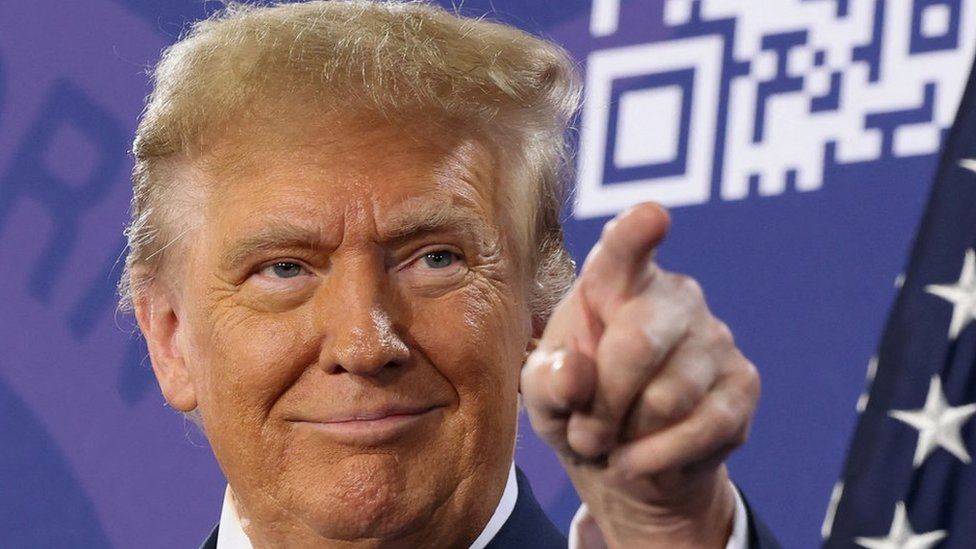More China tariffs if re-elected, Donald Trump says
- Published

Former US president Donald Trump has said he would impose more tariffs on Chinese goods if he wins the US election in November.
In an interview with Fox News, he said the tariffs could be in excess of 60%.
"We have to do it," said Mr Trump
Currently the frontrunner for the Republican party, Mr Trump is facing a number of criminal charges including attempting to overturn the 2020 election results, which he has denied.
He has long accused China of unfair trading practices and intellectual property theft.
"You know, obviously I'm not looking to hurt China. I want to get along with China. I think it's great. But they've really taken advantage of our country," he said.
During his presidency, Mr Trump triggered a bitter trade war between the world's two largest economies as he imposed tariffs on hundreds of billions of dollars worth of Chinese goods.
The Trump administration first began imposing levies aimed at curbing Chinese imports in 2018. The policy escalated to duties on goods ranging from seafood to chemicals later that year.
Beijing responded with tariffs on US imports including soybeans, wheat and poultry.
Mr Trump's latest comments go further than his previous remarks about introducing a universal 10% tariff on all imports into the US.
Current US President Joe Biden's administration has largely kept the tariffs in place, despite criticism that they have helped to push up prices and made the country less competitive.
Treasury Secretary Janet Yellen said last month that Mr Trump's plan to raise tariffs would raise the costs of a "variety of goods" for American businesses and consumers.
The US has been China's biggest export market for over two decades.
However, curbing US-China economic ties is gaining support from some Republican and Democrat lawmakers. A recent House committee report recommended higher tariffs on imports from China and restrictions on Chinese investments in the US.
- Published15 April
- Published31 January